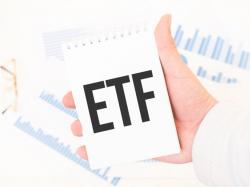Trade War Redux: These ETFs Due For Bumpy Ride Thanks To Trump Tariffs On Auto, Pharma, Chip Imports
Author: Chandrima Sanyal | February 19, 2025 11:59am
Investors are scrambling to assess the potential fallout of yet another tectonic trade decision.
What Happened: President Donald Trump plans to impose a 25% levy on auto, semiconductor, and pharmaceutical imports,
This move could have far-reaching consequences for ETFs with heavy exposure to these sectors, particularly those tracking automakers, chipmakers, and biotech firms.
Trump's protectionist stance triggered an immediate market response across the global markets. Asian stocks retreated after a five-day rally, with the MSCI Asia Pacific Index slipping, particularly affecting Japanese automakers like Toyota Motor Corp. (NYSE:TM).
Also Read: Warren Buffett Unfazed By Trump’s Tariff Threats: Oracle Of Omaha Bets On Mexico, Beer
Automakers: The U.S. imported around 8 million passenger cars and light trucks last year, comprising 50% of total vehicle sales, according to a report by Wall Street Journal. A 25% tariff would increase vehicle prices, impact supply chains, and hurt companies dependent on overseas manufacturing.
Here are a few ETFs likely to take a hit:
- Global X Autonomous & Electric Vehicles ETF (NASDAQ:DRIV): Fairly exposed to Toyota, Tesla (NASDAQ:TSLA), and Ford (NYSE:F), this fund could face turbulence as trade tensions mount.
- First Trust NASDAQ Global Auto Index Fund (NASDAQ:CARZ): Tracks major global automakers, including BMW, Honda, and General Motors (NYSE:GM), which rely on imported parts. The ETF also has significant exposure to Toyota and Tesla and allocates 46% of its assets to overseas stocks. That places it in a precarious position amid escalating tariff situations.
Chips: Trump also declared that sectoral tariffs on semiconductors would start at "25% or higher", escalating further over time. This comes as the U.S. considers a 100% tariff on Taiwanese semiconductors, an industry heavily reliant on TSMC (NYSE:TSM).
- iShares Semiconductor ETF (NASDAQ:SOXX) – With Nvidia (NASDAQ:NVDA), Advanced Micro Devices (NASDAQ:AMD), and Broadcom (NASDAQ:AVGO) among its top holdings, this fund is exposed to volatility stemming from supply chain disruptions.
- VanEck Semiconductor ETF (NASDAQ:SMH) – Heavily weighted towards TSMC, Intel (NASDAQ:INTC), and Qualcomm (NASDAQ:QCOM), making it vulnerable to any tariff escalation.
Pharma: The pharmaceutical sector is also caught in the crosshairs, with Trump hinting at escalating tariffs beyond 25% over the year. This could upend drug pricing, R&D costs, and supply chain dynamics for major biopharma companies.
- iShares U.S. Pharmaceuticals ETF (NYSE:IHE): Tracks major drugmakers like Pfizer (NYSE:PFE), Merck (NYSE:MRK), and Johnson & Johnson (NYSE:JNJ), all of which could see higher costs.
- SPDR S&P Biotech ETF (NYSE:XBI): While biotech firms often have global R&D operations, increased tariffs could disrupt access to imported drug components.
Why It Matters: Trump has long voiced concerns over U.S. automotive exports being treated unfairly abroad. In his first term, he threatened a similar 25% car tariff but ultimately backed down.
For ETF investors, volatility is back on the table. Those holding funds exposed to autos, chips, and pharmaceuticals must brace for a bumpy ride. While Trump believes the move will bring manufacturing back home, the short-term pain could be severe.
The Wall Street Journal reported that U.S. companies may receive a phase-in period, with tariffs increasing over the course of the year.
What's Next: Markets will be watching closely as April 2 (when auto tariffs are expected to kick in) approaches. Any delays or modifications to the tariff plan could shift investor sentiment.
For now, ETF traders should keep an eye on sectoral rotation, hedge exposure where necessary, and prepare for the potential impact of another round of trade wars.
Read Next:
Photo: Shutterstock
Posted In: AAPL AMD AVGO CARZ DRIV F GM IHE INTC JNJ MRK NVDA PFE QCOM SMH SOXX TM TSLA TSM XBI





